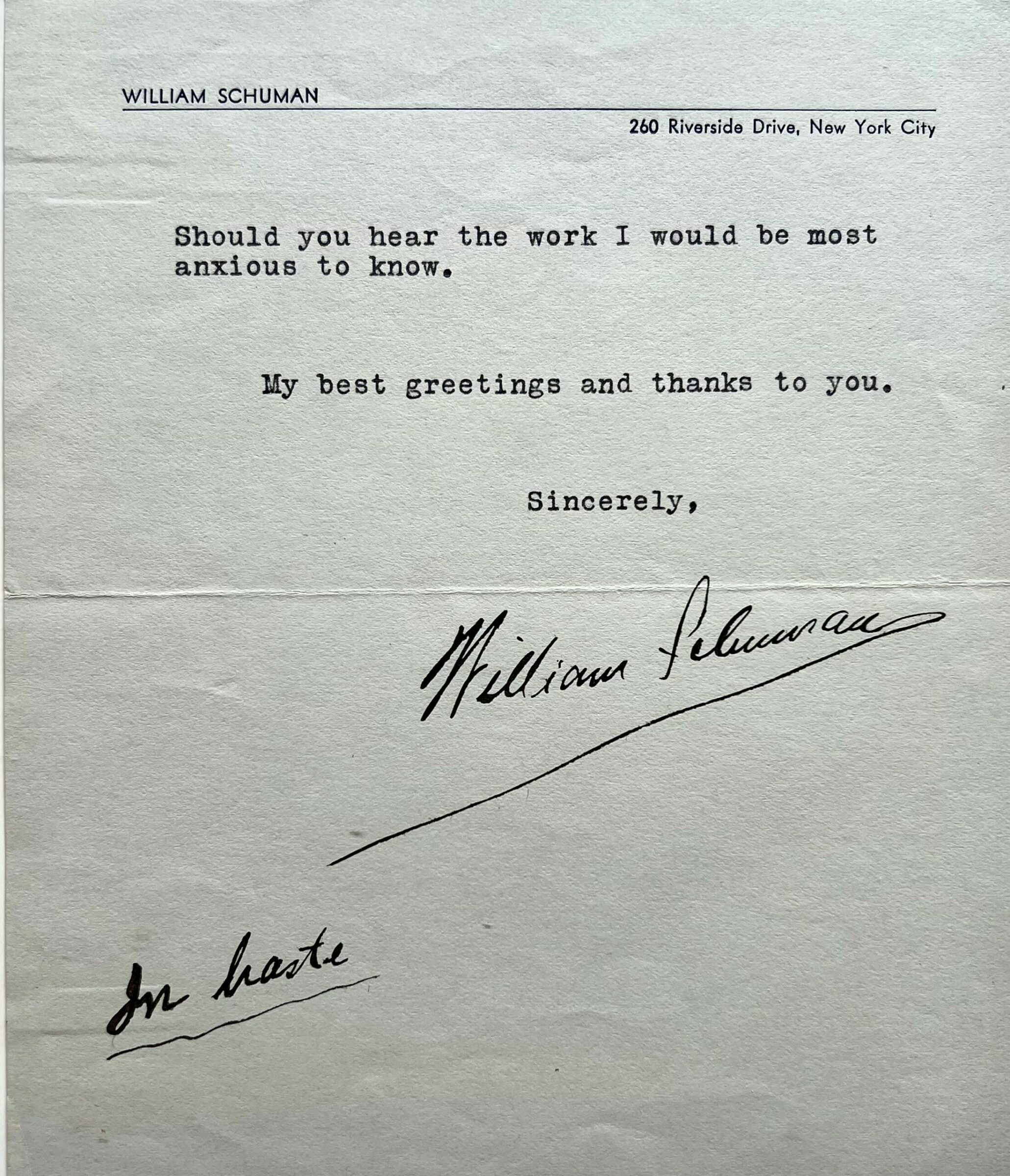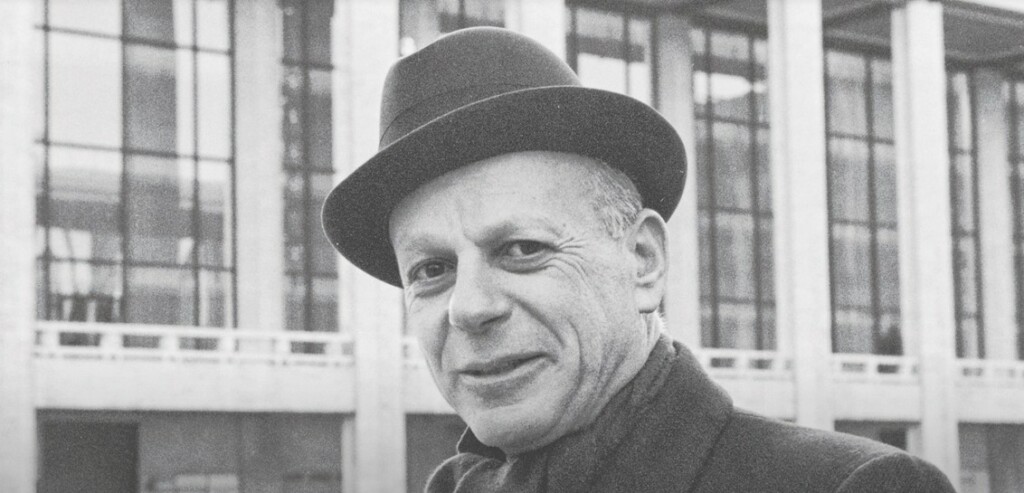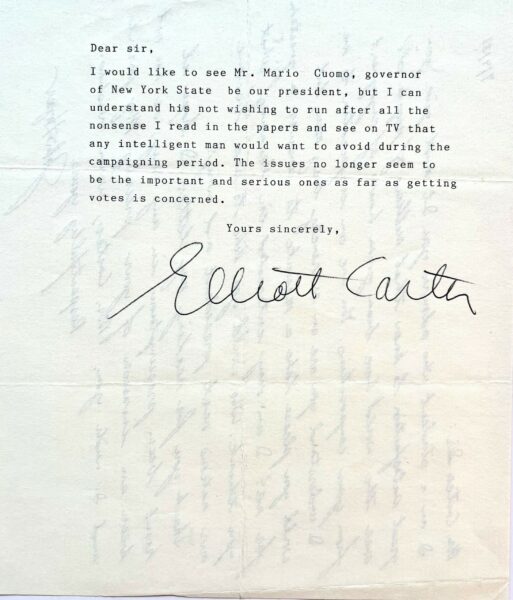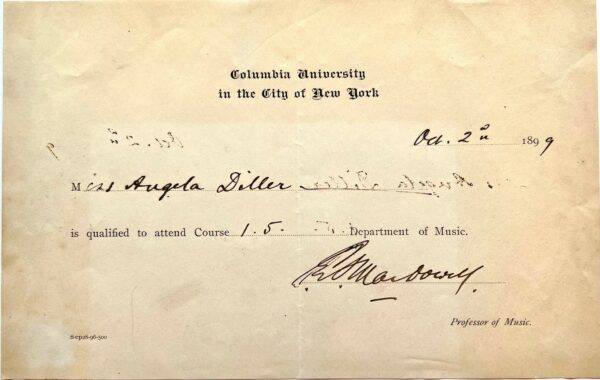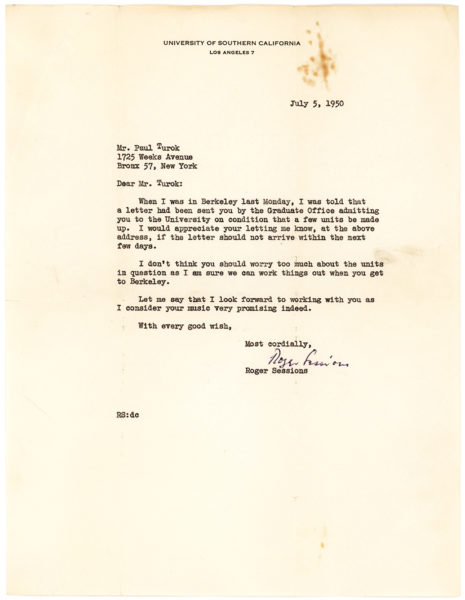Trained in Paris, Aaron Copland (1900-1991) was the first American to study with noted French composer, Nadia Boulanger. Though strongly influenced by the works of Igor Stravinsky, Copland’s compositions, which include Rodeo, Billy the Kid, Appalachian Spring and A Lincoln Portrait, are revered for their distinctly American theme and flavor.
It was Copland who recommended that self-taught American composer Roy Harris (1898-1979) study in Paris under Boulanger. Harris’ Symphony ‘1933’ was the first commercially recorded American symphony and his fame was secured by the 1939 performance of his Symphony No. 3 under Serge Koussevitsky. He continued to compose while holding a series of teaching positions at such prestigious institutions as Mills College and Julliard.
Schuman studied privately with Harris, who introduced him to Koussevitzky who became a proponent of his works. At the time of our letter Schuman was teaching composition at Sarah Lawrence College in Bronxville, New York, while enjoying a fruitful period of composition supported by Copland, Harris and Koussevitzky. Koussevitsky conducted his Symphony No. 2 in 1939 and commissioned his Symphony for Strings, which debuted in 1943, the same year that Schuman won the first Pulitzer Prize for Music. Our letter discusses his Chorale Etude, composed in 1937, and his String Quartet No. 3, composed in 1939. In addition to his large compositional output, Schuman later became president of Lincoln Center and Julliard, where he founded the Julliard String Quartet. His support of American music was recognized with a special Pulitzer awarded in 1985 for “more than half a century of contribution to American music as composer and educational leader.”
While working as a math professor and administrator at the National University of Bogota, de Greiff penned a column about music in El Tiempo and, after helping to establish a national radio station, broadcast on musical matters over the airwaves. In addition to authoring several musicological works, including two works on Beethoven and an illustrated history of music, de Greiff wrote poetry and translated poetry by other authors into Spanish.
Folded with two paperclip impressions in the left margin. In very fine condition. Uncommon with content and from such an early date.

